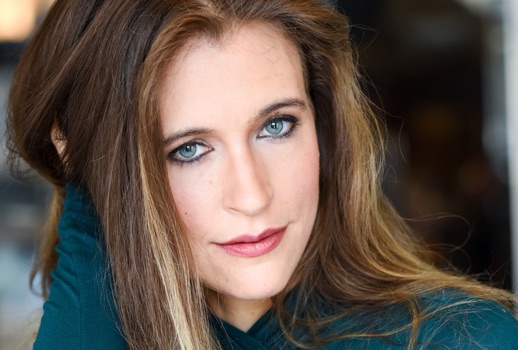
The first time I saw the opera live, with Susan Bullock at the Met, I was underwhelmed. I expected the anxious, expressionist score to rupture my eyeballs. But the orchestra was rather docile and Bullock was almost inaudible—I’m not sure if it was because of where I was sitting in the house (mid-orchestra, to the right) or if it was due to Bullock’s vocal shortcomings.
When I saw Patrice Chéreau’s new production at the Met this spring, things were closer to my expectations. The orchestra, under the direction of Esa-Pekka Salonen, was muscular, with plenty of moxie—whether hurtling toward modernist dissonance or glorious lyricism. And Nina Stemme was a calculated Elektra—even now, as I recall seeing the performance, I think of Tommasini’s apt review in the Times, where he described Stemme as “smoldering.” But still, my ears did not bleed.
I suppose it took a small, black-box performance at Dixon Place by Create Opera to finally get my chance to be physically wounded by Elektra. Ok, my ears didn’t bleed, but I did leave the performance last night with a terrible headache. Never in my life had I heard such loud singing. Perhaps unhinged and, at times, unsustainable, but also incredibly loud.
I believe most of the credit goes to Elisabeth Shoup, whose Elektra was an otherworldly creation. She was tall, beautifully androgynous, and an awkward performer; and, her singing had that distinct, piercing quality I’ve been searching for. At such close proximity, I could see her tongue fluttering in the back of her throat, which provoked questions regarding her technique. But even so, what I could not question was the sheer force of her voice and presence.
As her sister and foil, Chrysothemis, Lauren Onsrüd was equally vociferous, though a bit more skillful in her technique. Like her onstage sister, Onsrüd had an ethereal, strange beauty, though her countenance possessed an appropriate element of sweet innocence. The two singers knitted a lovely, complex web between the two characters, one in which affection, obligation, and resentment intertwined in compelling ways. Their movements about the small performance space were frenetic with anxiety and confusion, tapering off only in moments of bleak despair.
In contrast, as their brother Orestes, Chuck Schneider had a noble bearing, standing with shoulders back and two feet on the ground. His unswerving demeanor was fitting for Orestes’ singular function within the plot. And his voice, warm and supple, was a welcomed respite from the high-decibel vocalism of his sisters. He was also very handsome.
Falling somewhere in the middle of these two frequencies was their mother, Klytämnestra, sung by Eowyn Driscoll. Driscoll’s contralto lacked both stability and focus, especially as she climbed the staff. However, her characterization of the murderous queen had a wonderfully manic dimension. Upon hearing the news of Orestes death, her outsized reaction—forced, hysterical laughter—provoked an unnerving ambiguity: was she rejoicing her grieving?
The rest of the cast offered proper support for the central family drama. As Aegisth, Oliver Söngen was nicely strident and creepy. And the five maids were a reliable set of voices, though they did not match the intense brunt of Elektra and Chrysothemis.
The stage direction, by Marc Verzatt, was clear and minimal, suitable for the small performance space available to him. As expected, Elektra dominated the proceedings with strange bird-like movements about the stage, or slithering along the floor like an oversized worm.
Indeed, Elektra’s alien presence brought a wonderfully queer dimension to the character. This is a woman who—like another Sophoclean heroine, Antigone—insists on remembering the unsavory conditions of the dead. An unseemly figure, she refuses to play along, hissing, howling, and lashing out at the mechanisms of power that wish to elide her demands for justice. She occupies a marginal space—and Shoup’s physical embodiment of Elektra’s alterity indicated her disconnected position within her community.
However, in light of Chéreau’s distilled staging at the Met, I longed for something a bit messier. With all the talk of blood in the libretto (steaming blood), it would have been nice to see the director introduce an element of tactile variation—perhaps the maids could have washed with real water (it’s free!) instead of pantomiming their work. On the other hand, Verzatt’s direction was simplified in accordance with the limits of the black-box theater. The result was a fascinating intimacy, compressed and claustrophobic, shattered only by the largeness of the performer’s voices.
But to be fair, Elektra is not a chamber opera. Strauss’ writing for the orchestra is a significant aspect of the opera’s power—its gigantic dimensions and grand gestures—mythological in scope. So, to stage the opera in a chamber setting with only a piano reduction (skillfully played by music director Jestin Pieper) seemed odd to me. As Elektra, standing practically three feet in front of me, hurled her iconic “Allein! Weh, ganz allein” at my skull like a laser beam, I felt a twinge of cognitive dissonance; things just weren’t right. But still, it was loud.
I’m sure most people would agree that singing is more than rupturing eardrums and cracking skulls. It’s a craft that requires finesse, technique, and a clear point of view. While a certain strain of glib opera queen in me enjoyed the harrowing performance, I left Dixon Place having a bit more respect for Bullock and Stemme. Maybe it’s a big callow to want something so indelicate from the role of Elektra? Maybe the lyricism and color that both Bullock and Stemme brought to their performances were qualities sorely missed from Create Opera’s production?
But, perhaps that’s not a fair comparison. Bullock and Stemme are world-class singers, and Create Opera is a relatively green company, miniscule in comparison to the Met. Granted, it might not be a good idea to compare the two companies and the singers they employ. But if that is the case, then why in the world would Create Opera stage Elektra, of all the pieces to consider within the repertory? There are plenty of more appropriate operas to stage in a black-box theater, with singers capable of good phrasing and easy vocal production. Why, then, did they choose Elektra?



